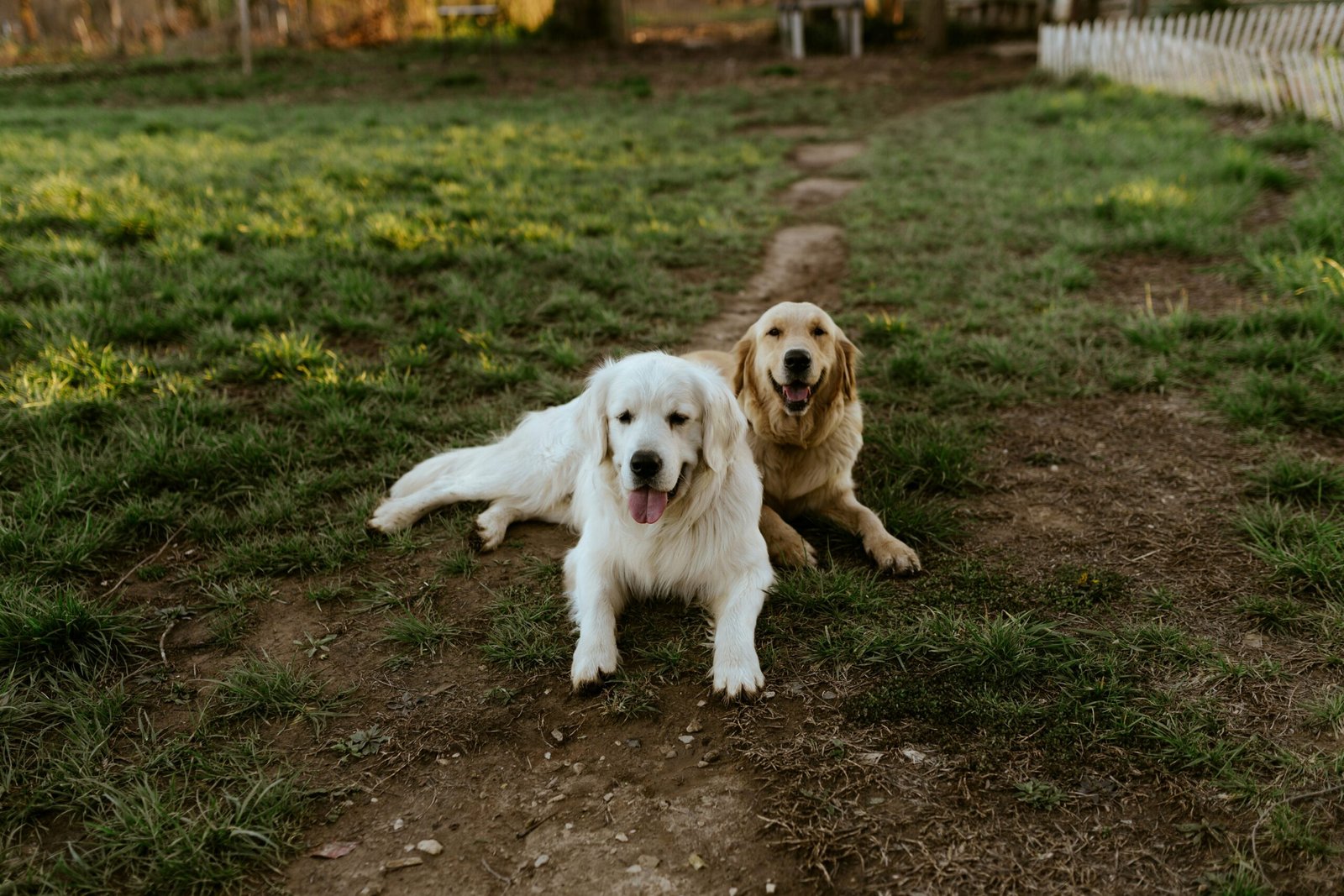Introduction to Farm Dogs
Farm dogs have been invaluable companions in agricultural settings for centuries, offering a range of services that are essential to the smooth operation of a farm. These versatile canines are not just pets; they are integral members of the agricultural community, providing assistance with herding livestock, guarding against potential threats, and even controlling pests. Their historical significance can be traced back to ancient times when early farmers recognized the unique abilities of dogs to enhance their farming efficiency and security.
The role of farm dogs has evolved alongside agricultural practices, but their core responsibilities have remained remarkably consistent. Herding dogs, for instance, are trained to manage livestock, ensuring that animals are moved safely and efficiently across pastures. This task requires not only physical agility but also an inherent intelligence and responsiveness to commands, making herding breeds indispensable to modern farming operations.
Guard dogs offer another layer of security by protecting livestock from predators and trespassers. Their keen senses and protective instincts make them excellent guardians, capable of deterring potential threats before they can cause harm. These dogs are often bred for their loyalty and vigilance, qualities that are crucial for the safeguarding of valuable farm animals.
Additionally, certain farm dogs are adept at pest control, helping to manage rodent populations and other small nuisances that can damage crops and stored food supplies. By keeping pests at bay, these dogs contribute to the overall health and productivity of the farm.
In summary, the multifaceted roles of farm dogs underscore their importance in agricultural settings. Whether herding, guarding, or controlling pests, these dogs provide skills and services that are essential to the efficiency and security of farming operations. Their historical significance and continued relevance highlight why they are indispensable to both traditional and modern farming practices.
Border Collie
Renowned for their intelligence and exceptional herding abilities, Border Collies are considered indispensable on farms with livestock. These dogs are highly alert, energetic, and eager to work, making them perfectly suited for a variety of farm tasks. Their strong herding instinct and acute problem-solving skills allow them to manage livestock effectively, often with minimal guidance from their handlers.
The temperament of a Border Collie is characterized by a keen sense of awareness and a strong desire to please their owners. They are highly trainable and thrive on positive reinforcement methods. Training a Border Collie requires consistency, patience, and a range of mentally stimulating activities to keep them engaged. These dogs excel in obedience training, agility courses, and, of course, herding exercises.
Due to their high energy levels, Border Collies require substantial exercise and mental stimulation. Daily physical activities such as long walks, runs, or play sessions are essential to keep them physically fit. Additionally, mental exercises like puzzle toys, advanced obedience training, and herding tasks are crucial to prevent boredom and ensure their well-being.
Border Collies’ herding capabilities are unmatched, thanks to their instinctive ability to control and direct livestock movements. They use a combination of eye contact, body language, and swift movements to guide animals, making them invaluable on farms. Their intelligence and adaptability also enable them to learn and perform a wide range of tasks beyond herding, further enhancing their utility.
In summary, the Border Collie stands out as one of the most versatile and capable farm dogs. Their intelligence, trainability, and exceptional herding skills make them an asset on any farm. Ensuring they receive adequate exercise and mental stimulation will help maintain their health and happiness, allowing them to perform their duties efficiently.
Australian Shepherd
Australian Shepherds, often referred to as “Aussies,” are a remarkable breed known for their versatility and boundless energy. Originating in the United States despite their name, these dogs were primarily developed for herding livestock. However, their skills extend far beyond herding, making them invaluable assets on any farm.
One of the defining characteristics of Australian Shepherds is their intelligence. They are quick learners and thrive on mental stimulation, which makes them highly trainable for a variety of tasks. Their keen sense of duty and strong work ethic enable them to excel in not just herding, but also in guarding the property and providing companionship. These dogs are exceptionally alert and possess a natural instinct to protect their territory, making them effective watchdogs.
In terms of working style, Australian Shepherds are known for their agility and stamina. Their medium-sized, muscular build allows them to navigate different terrains with ease, whether it be open fields or rugged landscapes. This physical prowess, combined with their keen eyesight and acute hearing, allows them to efficiently manage livestock, keep predators at bay, and ensure the smooth operation of daily farm activities.
Beyond their physical capabilities, Australian Shepherds are also revered for their strong bond with humans. They are affectionate and loyal, often forming deep connections with their owners. This makes them not only excellent working dogs but also wonderful companions, providing emotional support and companionship during long days on the farm.
When it comes to suitability for different types of farm work, Australian Shepherds are highly adaptable. Whether managing sheep, cattle, or poultry, their innate herding abilities and quick reflexes make them versatile enough to handle various tasks. Additionally, their protective nature ensures that the farm remains secure, while their friendly disposition ensures they get along well with other animals and people.
In summary, Australian Shepherds are an exceptional breed for any farm, offering a blend of intelligence, versatility, and companionship that is hard to match. Their ability to adapt to multiple roles and their unwavering loyalty make them indispensable members of the farming community.
Great Pyrenees
The Great Pyrenees, a breed steeped in history, has long been celebrated for its exceptional guarding abilities. Originating in the Pyrenees Mountains, this breed was traditionally employed by shepherds to protect flocks from predators such as wolves and bears. Their imposing size and formidable presence make them ideal livestock guardians, a role they have excelled in for centuries.
One of the most distinguishing characteristics of the Great Pyrenees is their protective nature. These dogs possess a natural instinct to safeguard their charges, whether they be sheep, goats, or other farm animals. This instinct is deeply ingrained, making them vigilant and responsive to any potential threats. Their thick, weather-resistant coat not only protects them from harsh environmental conditions but also serves as a barrier against attacks from predators.
Training a Great Pyrenees to optimize its guarding instincts requires a combination of early socialization and consistent reinforcement. From a young age, these dogs should be exposed to the livestock they will be protecting. This exposure helps them bond with the animals and understand their role within the farm ecosystem. Positive reinforcement techniques, such as treats and praise, are effective in encouraging desirable behaviors and ensuring that the dog remains attentive and reliable.
Despite their innate guarding abilities, it is essential to remember that the Great Pyrenees require a balanced approach to training. Overly harsh methods can lead to fearfulness or aggression, undermining their effectiveness as guardians. Instead, fostering a strong bond based on trust and respect will yield the best results. Regular training sessions, combined with ample opportunities for the dog to practice its guarding skills, will ensure that the Great Pyrenees remains a steadfast protector of the farm.
Anatolian Shepherd
The Anatolian Shepherd, also known as the Kangal Dog in its native Turkey, is a formidable breed renowned for its livestock protection capabilities. Originating from the Anatolian Plateau, these dogs have a rich history of guarding flocks and herds from predators, making them an invaluable asset to farmers with large herds. Their robust and muscular build, coupled with an innate protective instinct, enables them to effectively safeguard livestock against threats.
One of the most notable attributes of the Anatolian Shepherd is its guarding abilities. These dogs are naturally vigilant and possess a keen sense of awareness, which allows them to detect and deter potential dangers. Their imposing presence alone can be enough to ward off predators, while their agility and strength enable them to confront and neutralize threats when necessary. This makes the Anatolian Shepherd an excellent choice for farms that require a reliable and steadfast guardian for their livestock.
In terms of temperament, Anatolian Shepherds are known for their independence and strong-willed nature. They are highly intelligent and can be somewhat aloof, particularly with strangers. However, they are deeply loyal to their family and can form strong bonds with their human counterparts. This loyalty extends to the livestock they protect, and they will go to great lengths to ensure the safety of their charges.
Training an Anatolian Shepherd requires patience and consistency. Due to their independent streak, these dogs may not always respond well to traditional training methods. Positive reinforcement and early socialization are essential to help them develop into well-rounded and obedient guardians. Additionally, providing them with a clear structure and purpose can help channel their natural instincts in a productive manner.
Overall, the Anatolian Shepherd is a breed well-suited to farms with large herds. Their origins and innate guarding abilities, combined with their loyal and protective nature, make them an invaluable asset for livestock protection. With proper training and socialization, they can become reliable and steadfast guardians for any farm.
Catahoula Leopard Dog
The Catahoula Leopard Dog, celebrated for its adaptability, stands out as a multifaceted asset in diverse farm environments. Originating from Louisiana, this breed is known for its unparalleled versatility in hunting, herding, and guarding duties. The Catahoula’s distinct appearance, marked by its striking coat patterns and often heterochromatic eyes, adds to its allure and uniqueness.
When it comes to hunting, the Catahoula Leopard Dog exhibits remarkable prowess. Their keen senses and agile bodies make them exceptional at tracking and capturing game, proving invaluable in rural settings where hunting is a regular activity. Their innate hunting skills are complemented by their intelligence and trainability, allowing them to adapt to various hunting techniques and environments.
In herding, the Catahoula Leopard Dog excels due to its natural instinct to control and manage livestock. Their assertive yet controlled approach ensures that cattle, sheep, and other farm animals are efficiently guided and managed. Unlike some breeds that may rely on brute strength, Catahoulas employ a balance of power and strategy, making them effective herders even in challenging terrains.
Guarding is another area where the Catahoula Leopard Dog shines. Their protective nature and alertness make them excellent watchdogs, always ready to defend their territory and the farm’s inhabitants. Their imposing presence and loyalty ensure that potential threats are deterred, providing peace of mind to farm owners.
Moreover, the Catahoula Leopard Dog’s adaptability extends beyond specific tasks; they thrive in various climates and farm setups. Whether it’s a small family farm or a large agricultural operation, these dogs seamlessly integrate into the daily routines, contributing to the farm’s overall efficiency and security.
In essence, the Catahoula Leopard Dog’s unique combination of hunting, herding, and guarding abilities, along with their striking appearance and adaptability, makes them an indispensable companion in any farm environment.
Welsh Corgi
Despite their small stature, Welsh Corgis have earned a reputable status as proficient herders, particularly when it comes to managing cattle. Originating from Wales, these dogs were historically bred for their agility and intelligence, qualities that make them highly effective on farms. Their herding style is unique; they nip at the heels of cattle to keep them in line, a technique known as “heel nipping.” This method works exceptionally well for cattle herding, enabling the Corgis to control large animals despite their diminutive size.
Historically, Welsh Corgis, particularly the Pembroke and Cardigan varieties, have been indispensable assets on farms. They were not only used for herding cattle but also for other livestock such as sheep and even poultry. Their versatility made them valuable companions to farmers, who relied on their keen instincts and diligent nature for various farm tasks. The dogs’ historical significance is evident in their continued popularity among modern farmers who appreciate their multifaceted abilities.
Energetic and intelligent, Welsh Corgis thrive in farm settings where they can put their skills to good use. Their high energy levels require regular physical activity, making a farm an ideal environment for them. They are quick learners and adept problem-solvers, often anticipating the needs of their human counterparts. This intelligence, coupled with their agility, allows them to perform a range of duties efficiently, from herding to guarding the property.
In essence, Welsh Corgis are small yet mighty farm dogs. Their historical use, unique herding style, and energetic, intelligent nature make them an excellent choice for farmers looking for reliable and versatile canine assistants.
Bernese Mountain Dog
The Bernese Mountain Dog, a breed originating from the Swiss Alps, is renowned for its strength and ability to pull carts, which makes it an invaluable asset on the farm. Historically, these dogs were bred to work on farms by hauling heavy loads, a testament to their physical prowess. Their robust build, characterized by a sturdy frame and muscular limbs, enables them to handle demanding tasks with ease. This physical strength is complemented by their remarkable endurance, allowing them to perform for extended periods without fatigue.
Beyond their physical capabilities, Bernese Mountain Dogs are distinguished by their affectionate and loyal nature. They are known for forming strong bonds with their human companions, displaying a devotion that is both endearing and reliable. This loyalty is particularly beneficial in a farm setting, where trust and dependability are vital. Their gentle temperament also makes them excellent family pets, as they are typically good-natured and patient, even with young children.
The breed’s history is deeply intertwined with agricultural life, reflecting a legacy of hard work and companionship. Bernese Mountain Dogs were traditionally used not only for cart-pulling but also for herding livestock and guarding the property. This versatility in tasks highlights their adaptability and intelligence, making them a multifunctional breed suitable for various farm duties.
In addition to their work capabilities, the Bernese Mountain Dog’s striking appearance adds to its appeal. With a thick, tri-colored coat that provides insulation against harsh weather, they are well-suited to outdoor life in diverse climates. Their expressive eyes and calm demeanor further enhance their charm, making them a favorite among farmers and dog enthusiasts alike.
In summary, the Bernese Mountain Dog stands out not only for its physical strength and endurance but also for its loyal and affectionate temperament. These qualities, combined with their historical significance and versatility, make them an excellent choice for any farm, providing both practical assistance and unwavering companionship.
Old English Sheepdogs
The Old English Sheepdog is renowned for its exceptional herding capabilities and distinctive, shaggy appearance. This breed, with its lush double coat, is highly effective at managing livestock, demonstrating both intelligence and agility in the field. The Old English Sheepdog is adept at driving sheep, cattle, and other animals, ensuring the efficient operation of farm activities.
One of the most notable aspects of the Old English Sheepdog is its grooming requirements. Their thick, shaggy coat demands regular maintenance to prevent matting and keep the fur in optimal condition. Routine brushing, at least several times a week, is essential, along with periodic professional grooming sessions. Despite the high grooming demands, many owners find the process rewarding, as it helps strengthen the bond with their canine companion.
Beyond their herding skills and grooming needs, Old English Sheepdogs are cherished for their friendly and adaptable nature. They are known to be affectionate, loyal, and good-natured, making them excellent companions for families and farm life alike. Their sociable demeanor allows them to integrate well with both humans and other animals, contributing to a harmonious farm environment.
Furthermore, the Old English Sheepdog’s adaptability extends to various living conditions. Whether on a sprawling farm or a smaller homestead, they adjust well, provided they receive sufficient physical and mental stimulation. Their herding instincts can be channeled through various activities, ensuring they remain engaged and content.
In summary, the Old English Sheepdog stands out as a versatile and endearing breed, perfectly suited for the demands of farm life. Their exemplary herding abilities, coupled with their amiable disposition and adaptability, make them invaluable assets to any agricultural setting. With proper care and attention, these dogs thrive, offering both practical assistance and unwavering companionship.


